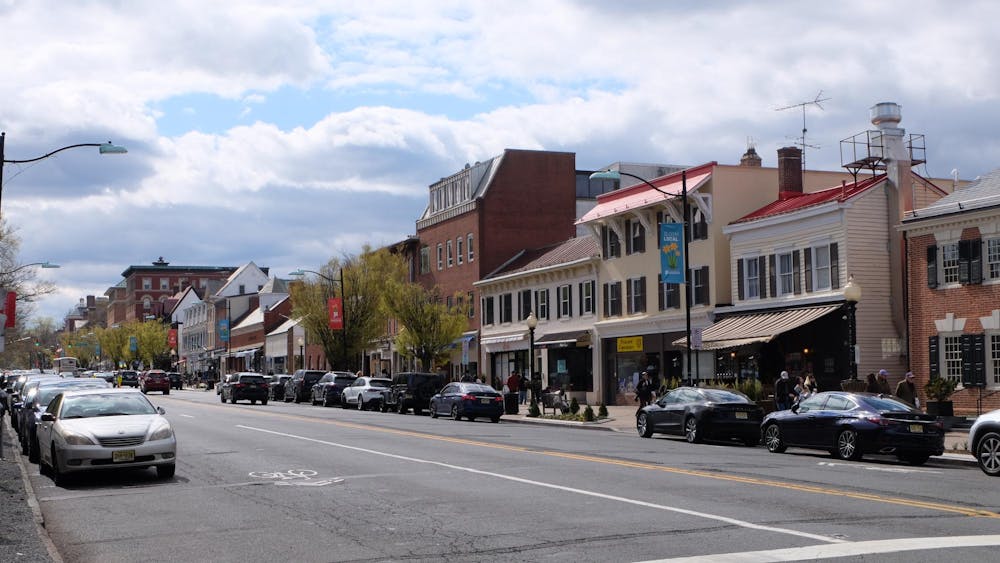For the first time in ten years, three seats in the Princeton Board of Education (BOE) election are uncontested. This election aligns with New Jersey’s gubernatorial election — and school districts are near the center of both gubernatorial candidates’ platforms.
At the first gubernatorial debate on Sept. 21, candidates Jack Ciattarelli (R) and Congresswoman Mikie Sherrill (D) placed the consolidation of school districts, mental health, and curriculum at the center of their scholastic debates.
The Daily Princetonian sat down with the three BOE candidates and discussed their positions on the governors’ campaigns and their own.
Three BOE positions are put up for reelection each year on a rotating basis. Current president Dafna Kendal, current vice president Susan Kanter, and newcomer Erica Snyder are all running uncontested.
Both Kendal and Kanter’s terms expire at the end of 2025. Current board member Debbie Bronfeld’s term also expires at the end of 2025, and it is likely that Snyder will replace her position.
Snyder, a history teacher, ran unsuccessfully for a BOE position last year. She is running again, believing that her extensive experience “having worked in over 12 different [school] districts” will be an asset.
Kanter, who’s been on the council for six years, is running for her third term, and Kendal, who’s been on the council since 2015, is running for her fourth term.
During the recent gubernatorial debate, candidates discussed the consolidation of school districts throughout the state. Sherrill supported merging schools into larger districts, while Ciatterelli believed it should be a local decision.

The three BOE candidates had mixed thoughts on the larger districts. Snyder said that consolidating Princeton public schools with another district, such as West Windsor, would not be a “good decision” due to the “sheer size” of the hypothetical district.
“But, I could see where there are ways that shared resources or shared professional development opportunities might make sense,” Snyder added.
“If [the future governor] has a solid plan on consolidating, and it lets us better use state money on the students, that is something I would support,” said Kanter.
Similarly, gubernatorial candidates discussed changes to school curriculums. Specifically, Ciatterelli has said he wants to offer “transparency” to public school parents and to “reform requirements for sexual and social education.”

Kanter expressed uncertainty with Ciatterelli’s position in an interview with the ‘Prince.’ “It would be hard for me to comment, because unless he mandates ‘A, B and C,’ I don’t know what direction he’s heading in.”
Mental health for students was another prominent topic of the gubernatorial debate, with Sherrill supporting increasing the number of school counselors and psychologists. Snyder pointed out the impact of budget restrictions on making potential changes.
“If we had an unlimited budget ... we could add more mental health support, but we are kind of constricted by the state cap on funding and raising our funds,” she said.
All three members said they hoped to continue the relationship between the Board of Education and the University.
“I’m in an organization called The 101 Fund, for example, that supports scholarships for school for students from Princeton to go to both two and four year school. Princeton University is very supportive of that organization,” said Kanter. The fund raises money for students at Princeton High School to afford a college education.
Snyder said that there are “ways we could increase partnership,” such as encouraging mentorship between high schoolers and University students.
BOE candidates seemed content with the state of public education in New Jersey. In 2024, the state was ranked second for education in the country.
“I think the Princeton public schools are a big draw as to why people move to Princeton,” Kendal told the ‘Prince.’
“Princeton is my home,” she added. “It’s where my children went to school. It’s a privilege to serve the community in this way.”
In light of the gubernatorial campaign, Kanter said that she “hope[s] the next governor will be very supportive of keeping and improving New Jersey’s public schools.”
According to Kendal, the candidates are committed to their students and “ensuring that every student in our district has the resources and support they need to reach their full potential.”
“That looks different for every child — for some, it’s access to advanced coursework and enrichment opportunities; for others, it’s specialized instruction, academic or emotional support, or smaller learning environments where they can thrive,” Kendal said.
There will be an online forum with all of the BOE candidates on Oct. 23 at 7:30 p.m. The general election for both races will take place Nov. 4.
Once elected to the Board, the members’ positions on the board will be determined. Kendal is anticipated to remain president, a position she’s held since 2022, along with Kanter as vice president.
Clara Docherty is a staff News writer for the ‘Prince.’ She is from Lafayette, N.J., and typically covers campus clubs and institutional legacy. She can be reached at clara.docherty[at]princeton.edu.
Aitana Camponovo is a News writer for the ‘Prince.’ She is from Washington, D.C., and can be reached at ac9353@princeton.edu
Please send any corrections to corrections[at]dailyprincetonian.com.








